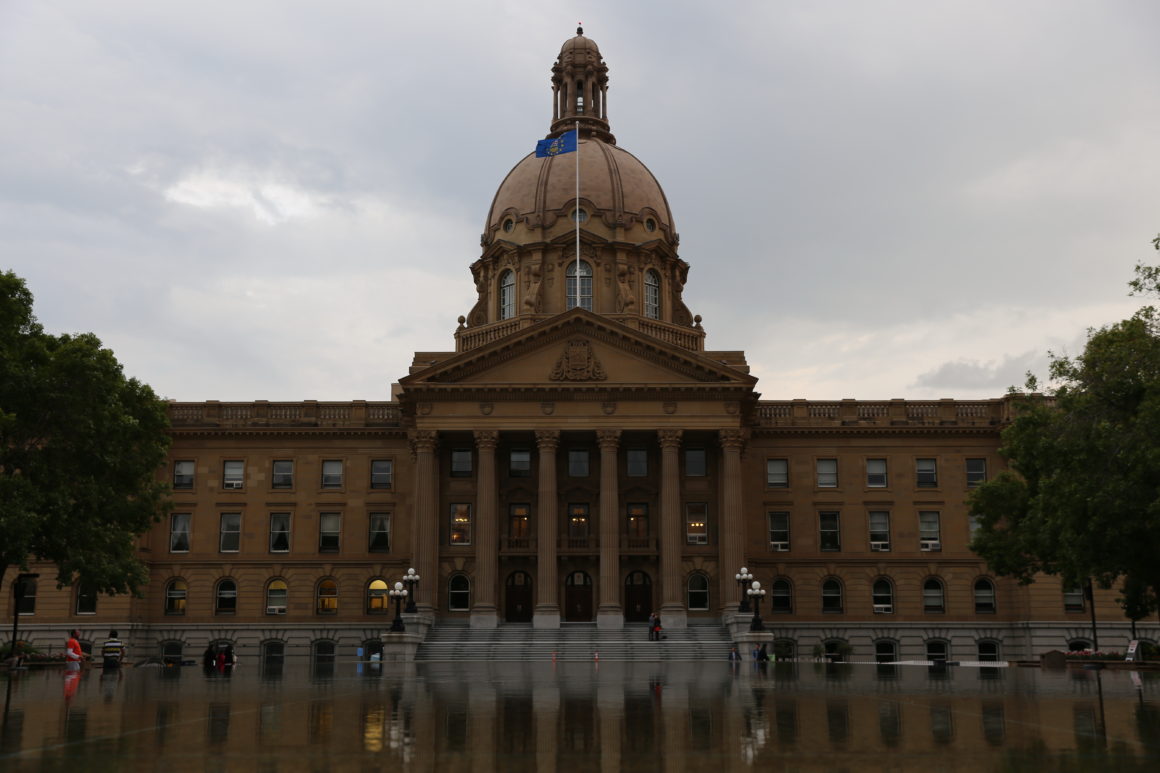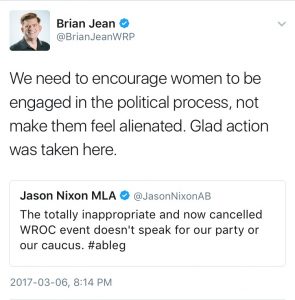
Alberta conservative parties must run more female candidates in future elections
By Tina Shaygan, March 14 2017 —
The backlash to the “feminism is cancer” email sent out by the University of Calgary Wildrose on Campus club was quick. Various Members of the Legislative Assembly took to Twitter and other social media platforms to denounce the email and demand an apology. Wildrose leader Brian Jean tweeted that the club’s words do not reflect the values of the party and that we must create a better environment for women in politics.

Wildrose leader Brian Jean and other members of the party denounced the club’s email shortly after. //
It is good that politicians from both sides of the spectrum denounced the email. But public apologies aren’t enough to address the problem of systematic gender-based harassment in Alberta politics. To actually create any change, provincial party leaders must pledge to run slates of equal number of men and women in the 2019 election.
Alberta has a problem. Rachel Notley has received the most threats of any Alberta Premier to date. Sandra Jansen and Donna Kennedy-Glans — the only two female candidates for the leadership of the Progressive Conservative Party of Alberta — both stepped down from the race due to harassment. And prior to Stephanie McLean giving birth while sitting as an MLA, the question of maternity leave for MLAs had never been discussed in Alberta legislature.
While politicians often publicly ask for a more inclusive political environment, there has been a lack of action to include more women in Alberta politics. In 2015, the PC party had 22 female candidates out of a total of 87. The Wildrose party ran 16 female candidates out of a total of 86. Currently, the Wildrose party has two female MLAs — Angela Pitt and Leela Aheer. There are no female PC MLAs in the legislature since Sandra Jansen crossed the floor to the New Democratic Party a few months ago.
This problem isn’t limited to Alberta, as the Liberal Party of Canada had only 31.1 per cent women candidates in the 2015 federal election and the Conservative Party of Canada had a slate of 19.5 per cent female candidates in the same election.
There are different ways to create a more inclusive environment for women in politics, like changing party leadership and candidacy rules, as well as shifting party policies to include women’s issues. But for now, Alberta’s best bet is to actually get more women involved in government first. And electing more women starts with more women running in elections.
Research shows that recruiting female candidates may take more time than recruiting men. But it is worth the wait. Out of the 25 women elected as NDP MLAs in 2015, 17 beat out PC incumbents. The NDP ran 46 female candidates out of a total of 87.
It is positive that politicians of all sides are saying they want to see a better environment for women in government, but they must do more. By pledging to run more female candidates, politicians would be doing just that — creating a better environment for women in politics.
Brian Jean, Jason Kenney — whose statement about the email from a student club that has endorsed him is noticeably absent — and all other potential future leadership candidates of political parties in Alberta must commit to recruiting more female candidates. Otherwise, these apologies are nothing but empty words.
